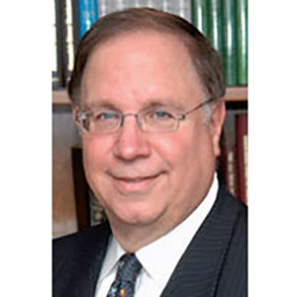
Part I
The unending war between the Palestinian Arabs and Israeli Jews is fought on a number of levels. One on the military front, another in the propaganda arena.
As part of this war of words, the Israelis use the Arabs’ own writings, including the Hamas Covenant and the Palestinian National Charter, their calls for violence against Israel and glorification of Palestinian Arab terrorists found in the media, broadcast on television, preached in the mosques and found in school curricula, as proof the Arabs in Israel refuse to accept the existence of the state of Israel.
The Palestine Authority policy of paying stipends to Palestinian-Arab prisoners and to families of terrorists who have been wounded or killed further demonstrates their commitment to make the country Judenrein. The terrorists know that whether they are killed in combat or imprisoned in Israeli jails, their families will be compensated by the PLO, Hamas, Islamic Jihad, and/or other Palestinian-Arab terror organizations. In 2019, ignoring otherwise ordinary measures of inflation, the PA increased salaries to terrorist prisoners by 11.8%, according Palestinian Media Watch. They doubled the monthly payment being made to the terrorist mastermind behind the 2014 kidnapping and murder of Gilad Shaar, Eyal Yifrach and Naftali Frenkel.
With the aid of the Palestinian Media Watch and MEMRI, Israel documents how terrorists are revered in their society by honoring homicide bombers, bomb makers, hijackers and organizers of terror attacks, who have public squares, streets, schools and youth centers named after them. A number of the vilest terrorists have been honored on multiple occasions.
Haj Amin al-Husseini—the Grand Mufti of Jerusalem
One source for this instigation to hatred is attributed to Haj Amin al-Husseini, the Grand Mufti of Jerusalem in Mandatory Palestine, and founder of the Palestinian Arab national movement after the First World War. According to Zvi Elpeleg of the Dayan Institute at Tel Aviv University, the mufti, “more than any other figure,” was “responsible for making the Palestinian issue a central topic on the agenda of the neighboring countries, and for turning the conflict into a regional struggle.”
As the dominating Palestinian Arab leader for 30 years, the mufti is credited by Elpeleg with transforming rejection of the British Mandate and of Zionism, and the goal of establishing an independent Arab Palestine, into principles that were inviolable. There also could be no compromise with his policy of allowing the Arab refugees to remain in their camps. He charged that the proposal to transfer them elsewhere was a “plot to eliminate the problem of Palestine.” The mufti played a key role in shaping the doctrine of “right of return,” which has become sacrosanct, to the point where no Arab leader would risk challenging its viability or vacate this tenet.
When the political problems of the Palestinian Arabs were ineffective in arousing Muslim concern around the world, Elpeleg said al-Husseini focused on the issue of the al-Haram al-Sharif (Noble Sanctuary)/Temple Mount in Jerusalem. Though the mosques were in need of considerable repair after years of neglect, he warned of the risks they faced from the Jews. Restorations lasted until the end of the 1920s, along with a concentrated propaganda campaign throughout Arab and Muslim countries. In highlighting Jerusalem, al-Husseini succeeded in bringing the plight of the Palestinian Arabs to the attention of millions of Muslims.
As a result, the mufti dispelled the Arab’s feeling of vulnerability and powerlessness at their organizational disarray and absence of equipment needed to confront the British and the Zionist movement.
Until 1948, he played a pivotal role in the Arab Palestinian national movement, which he founded. His influence continued for years before Yasser Arafat emerged. “There is almost nothing in the PLO doctrine, or in the national charters of the Palestine National Council,” Elpeleg concluded, “which had not already been conceived and given expression by Haj Amin, but the PLO does not even pay lip service to Haj Amin for this.”
The Mufti in the
Service of the Axis Powers
The mufti’s support of the Axis powers during WWII has ensured he will not be forgotten in Israel, especially by Prime Minister Binyamin Netanyahu. In a widely quoted speech before the World Zionist Congress in Jerusalem on October 20, 2015, Ha’aretz reported Netanyahu described a meeting between Hitler and the mufti in November 1941: “Hitler didn’t want to exterminate the Jews at the time, he wanted to expel the Jew. And Haj Amin al-Husseini went to Hitler and said, ‘If you expel them, they’ll all come here (to Palestine).’” According to Netanyahu, Hitler then asked: “What should I do with them?” and the mufti replied: “Burn them.”
Negative response to this historical error came immediately from scholars and laymen alike. The Times of Israel reported that in a lengthy Facebook post, Netanyahu said he wanted to “clarify [his] remarks about the connection between the Mufti Haj Amin al-Husseini and the Nazis.” He “did not mean to claim that in his conversation with Hitler in November 1941 the mufti convinced him to adopt the Final Solution. The Nazis decided on that by themselves.”
By Alex Grobman, PhD
Alex Grobman, a Hebrew University-trained historian, has written extensively on the Shoah and Israel including “License to Murder: The Enduring Threat of the Protocols of the Elders of Zion,” “Denying History: Who Says the Holocaust Never Happened, and Why Do They Say It?” with Michael Shermer, “Battling for Souls: The Vaad Hatzala Rescue Committee in Post-War Europe,” “Genocide: Critical Issues of the Holocaust,” “BDS: The Movement to Destroy Israel,” “Nations United: How the UN Undermines Israel” and “West.” He is a member of the Council of Scholars for Scholars for Peace in the Middle East (SPME).










